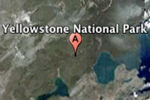An environmental issue in Uganda that left three people dead four years ago has reared its head again. The Ugandan government has resurrected plans to give a quarter of the Mabira Forest Reserve to a sugar cane corporation after dropping the idea in 2007 following large-scale protests, including one that left many activists injured and three dead. A pet project of Ugandan President Yoweri Museveni the plan would degazette 7,100 hectares of the 30,000 hectare Mabira Forest Reserve for a sugarcane plantation to be run by the Indian-owned company, Mehta Group. However the plan is being heavily attacked by critics.
“All Ugandan’s […] know the economic, ecological, social and other values of Mabira Forest Reserve. Each one of us who has attended Primary school get to know Mabira Forest Reserve as one of our Nation’s heritage at the heart of Buganda Kingdom and Uganda,” read a statement from Ugandan civil societies that oppose the plan.
Located in the southern Uganda district of Buikwe, Mabira forest has been under protection since 1932. The reserve is home to 312 species of tree, 287 species of bird, and 199 species of butterfly. In addition, the Ugandan gray-cheeked mangabey (Lophocebus ugandae), a monkey endemic to Uganda, has one of its most important populations in Mabira.
According to critics of the plan, converting part of the rainforest not only threatens important species, but could also imperil rainfall, which is already declining in the area, and worsen soil erosion. Burgeoning tourism efforts as well could take a hit. According to the Ugandan civil societies, 60 percent of tourists who visit a forest reserve in Uganda stop in Mabira.
To attempt to defuse the issue, MP Simon Wananzofu, has offered over twice as much land for a sugar cane plantation under Mehta in a non forested area.
“Mr President, there is a lot of outcry over Mabira, we don’t want you to die of pressure from the opposition. We have 50,000 acres of fertile land and we have given it to you to save Mabira. Tell the Indian sugar investors to come and start growing sugarcanes here,” Wananzofu said as reported by the Daily Mirror.
However, President Museveni said he would take the offered land for sugarcane—and Mabira forest as well.
Buganda Kingdom, an administrative district and historic kingdom in central Uganda, has also offered land only to be turned away.
While the Ugandan government has argued that the sugarcane plantation is necessary for jobs and development, a new study in Proceedings of the National Academy of Sciences has found that living next to a protected area actually improved the lives of poor Ugandans. The ten year study found that communities living adjacent to Kibale National Park in Uganda generally saw their prosperity—measured by access to clean water, livestock, and housing quality—improve rather than decline.
Ugandan civil societies argue that the Mabira Forest Reserve represents a national treasure that is not for any president to give-away.
“To many of us, the struggle to save Mabira Forest Reserve is much more than an economic, ecological or emotional struggle. It is about our present and future as a nation. It is about respect for our national heritage, our constitution and respect for our environmental laws. This is why we call upon all Ugandan’s of good will to categorically reject the current maneuvers by the President to degazette and donate to Mehta part of Mabira Forest Reserve,” their statement reads.
Related articles
Goodbye national parks: when ‘eternal’ protected areas come under attack

(03/17/2011) One of the major tenets behind the creation of a national park, or other protected area, is that it will not fade, but remain in essence beyond the pressures of human society, enjoyed by current generations while being preserved for future ones. The protected area is a gift, in a way, handed from one wise generation to the next. However, in the real world, dominated by short-term thinking, government protected areas are not ‘inalienable’, as Abraham Lincoln dubbed one of the first; but face being shrunk, losing legal protection, or in some cases abolished altogether. A first of its kind study, published in Conservation Letters, recorded 89 instances in 27 countries of protected areas being downsized (shrunk), downgraded (decrease in legal protections), and degazetted (abolished) since 1900. Referred to by the authors as PADDD (protected areas downgraded, downsized, or degazetted), the trend has been little studied despite its large impact on conservation efforts.
Ugandan forest being stripped for fuel wood
(09/27/2010) A new study in the open access journal of Tropical Conservation Science finds that the Kasagala forest reserve in central Uganda is losing important tree species and suffering from low diversity of species. Researchers believe that forest degradation for charcoal and firewood has put heavy pressure on this ecosystem.
Company seeks to log forest reserve for palm oil in Uganda
(01/15/2010) A company in Uganda is pressuring the environment ministry to allow it to log a protected forest reserve to establish a palm oil plantation, reports The New Vision.